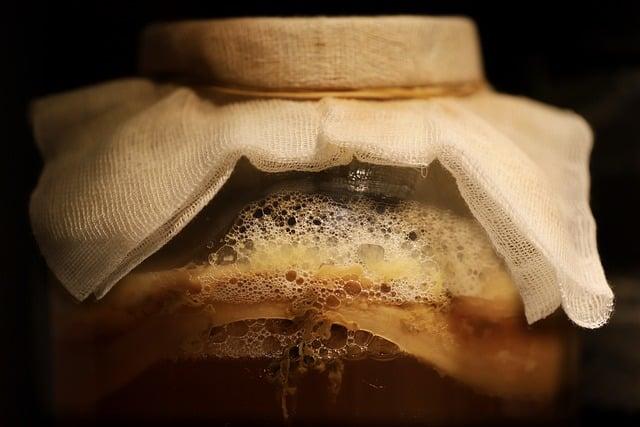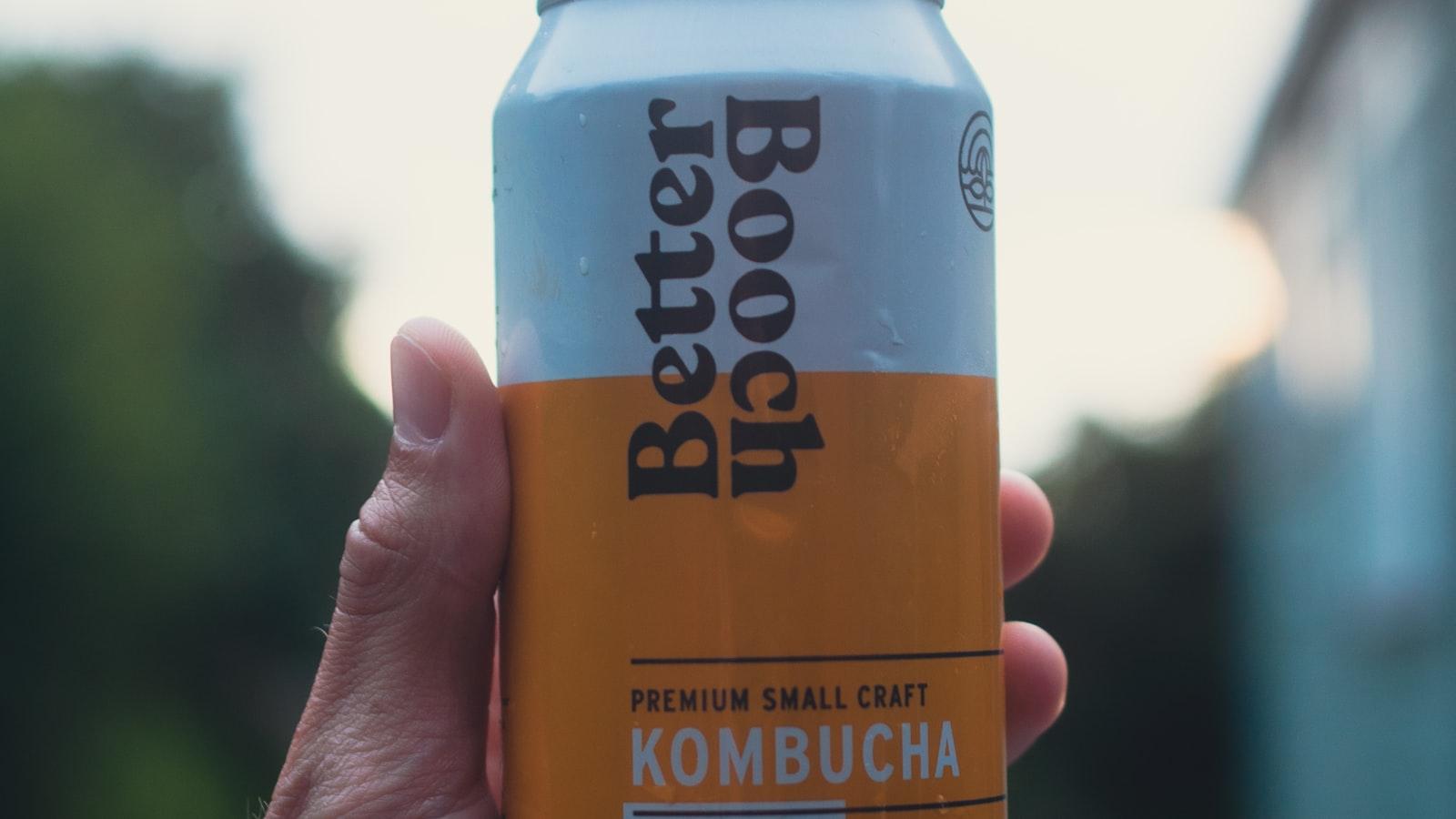Step into the fascinating world of kombucha culture, where ancient traditions meet modern wellness. Delve into the effervescent realms of this probiotic powerhouse that has captured the hearts and taste buds of health enthusiasts worldwide. From its humble beginnings to its growing popularity, explore the intricate tapestry of symbiotic cultures that cultivate this tangy elixir. Join us on a journey to uncover the secrets, science, and stories behind the effervescent beverage that is not just a drink but a lifestyle.
Table of Contents
- – Unveiling the Intriguing Origins of Kombucha Culture
- – Exploring the Health Benefits Associated with Kombucha Consumption
- – Essential Tips for Successfully Cultivating Kombucha at Home
- Q&A
- Final Thoughts


– Unveiling the Intriguing Origins of Kombucha Culture
In the world of fermented beverages, Kombucha reigns as an ancient elixir with a rich and mysterious history. Legend has it that the origins of Kombucha date back over two thousand years to the Far East, where it was revered for its purported health benefits and mystical properties. Passed down through generations, this "tea of immortality" eventually found its way from the mountains of China to modern-day glass bottles around the globe.The culture of Kombucha, known as SCOBY (Symbiotic Culture Of Bacteria and Yeast), is at the heart of this effervescent drink. This symbiotic colony resembles a slimy pancake, silently fermenting a sweetened tea mixture into a tangy, probiotic-rich tonic. The intricate dance of bacteria and yeast within the SCOBY creates a symphony of flavors, from tart to slightly sweet, making each batch of Kombucha a unique experience for the palate.
– Exploring the Health Benefits Associated with Kombucha Consumption
Delve into the world of this fizzy fermented tea drink and discover a myriad of potential health perks. From supporting gut health to boosting immunity, kombucha is more than just a trendy beverage—it’s a powerhouse of benefits waiting to be explored.
Rich in probiotics, antioxidants, and enzymes, **kombucha** is believed to aid digestion, detoxification, and overall well-being. Whether you’re a wellness enthusiast or a curious newbie, uncover the wonders of this ancient elixir and sip your way to a healthier lifestyle with each tangy, effervescent drop.


– Essential Tips for Successfully Cultivating Kombucha at Home
For successfully cultivating Kombucha at home, it’s crucial to pay attention to a few key tips that can make a real difference in the quality of your brew. First and foremost, maintaining a clean environment is essential. Make sure your brewing area, vessels, and utensils are sanitized to prevent any unwanted bacteria from interfering with the fermentation process.Another important factor to consider is the temperature at which you brew your Kombucha. Ideally, the brewing temperature should be between 75-85°F (24-29°C) to ensure optimal fermentation. Additionally, using high-quality tea and sugar is vital for providing the necessary nutrients for the SCOBY (Symbiotic Culture Of Bacteria and Yeast) to thrive. Remember to taste your Kombucha periodically during the fermentation process to achieve the desired balance of sweetness and tartness.
Explore the world of Kombucha brewing with these essential tips in mind, and you’ll be well on your way to creating your own delicious and probiotic-rich brew at home. With a little patience and attention to detail, you can enjoy the rewards of crafting your refreshing and healthful Kombucha right in your kitchen. Start your Kombucha brewing journey today and savor the unique flavors and benefits that come with each batch you create.
Q&A
Exploring the World of Kombucha Culture: A Fascinating Q&AQ: What exactly is kombucha culture, and why is it so essential to making kombucha?
A: Kombucha culture is a symbiotic culture of bacteria and yeast (SCOBY) that plays a crucial role in fermenting sweet tea into tangy, fizzy kombucha. This living culture metabolizes the tea’s sugars, producing organic acids and probiotics that give kombucha its unique taste and health benefits.
Q: How do you grow and maintain a healthy kombucha culture at home?
A: To grow a healthy kombucha culture, you need to provide it with a suitable environment: a glass container, sweet tea, and proper temperature. Regularly feeding the culture with fresh tea and sugar, keeping it away from contaminants, and providing good ventilation are key to maintaining its health.
Q: What are some common mistakes to avoid when working with kombucha culture?
A: Common mistakes include using metal utensils that can harm the culture, exposing it to extreme temperatures, neglecting proper hygiene practices, and not giving it enough time to ferment. Being mindful of these factors can help you avoid setbacks in your kombucha brewing journey.
Q: Can kombucha culture be reused, and how can one go about doing that?
A: Yes, kombucha culture can be reused multiple times. After each batch of kombucha, you can separate the new culture that forms on top (the "baby SCOBY") and use it to start a new brew. This practice allows you to maintain a continuous supply of kombucha while also sharing cultures with friends and fellow brewers.
Q: What are the benefits of incorporating kombucha culture into a regular diet?
A: Incorporating kombucha culture into your diet can have numerous benefits, such as improved digestion, boosted immune system, increased energy levels, and enhanced gut health due to its probiotic content. It can also be a delicious and refreshing alternative to sugary beverages.
Q: Are there any creative ways to incorporate kombucha culture into recipes beyond traditional kombucha brewing?
A: Absolutely! Kombucha culture can be used to make unique culinary creations like kombucha vinegar for dressings, kombucha jelly for snacks, or even kombucha popsicles for a refreshing treat. Experimenting with kombucha culture in the kitchen can lead to exciting flavor combinations and healthy additions to your meals.
